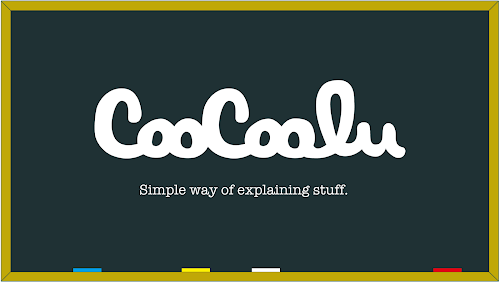In times of the “customer is king” mantra we, the customers, tend to look down on those who serve us. Customer service clerks, phone operators, cabin crew, bus drivers all get paid for serving us and ought to put up with all we say and do. We complain, therefore, frequently and vociferously, presumably to get better service next time. But ironically, it’s positive reinforcement that tends to produce the most improvements, not negative one. Yet giving compliments each time we are happy with the product / service that we receive is often overlooked. If we really feel so strong about helping shape a better experience for ourselves, courteousness and gratitude should be the order of the day. Not criticisms and complaints. And not via a survey, but personal, face-to-face “thank you" each time we feel delighted. Customer may be king, but courteous customer is a happy one.
Tuesday, 13 November 2012
Tuesday, 6 November 2012
40 Words You Will Never Use vol. 3
The latest batch of words that on a daily basis only crazy people dare to use. My favourite one must be “elision” which refers to "the omission of a sound or syllable when speaking” — never thought there was a word for it! Now for the ultimate challenge: use as many of these as possible in one game of Scrabble! Ha!
Elision ● Amalgamation ● Abhorrence ● Transgress ● Epithalamium ● Crevasse ● Tenacious ● Veridical ● Vociferous ● Vehement ● Avarice ● Fecundity ● Obfuscate ● Incorrigible ● Scurrilous ● Inoculation ● Quagmire ● Corollary ● Portent ● Effervescent ● Mendacious ● Prolegomenon ● Excise ● Prolegomenous ● Preposterous ● Inculcation ● Virulence ● Rapacious ● Opprobrium ● Surreptitious ● Palatable ● Excoriate ● Raucous ● Equanimity ● Adventitious ● Reticent ● Viscous ● Impunity ● Obdurate ● Desideratum
Meanings after the break.
Meanings after the break.
Sunday, 4 November 2012
Tuesday, 2 October 2012
Blogging That Works
Blogging that works has five components:
1. Logic. Rock solid reasoning and supersonic argumentation. No room left for lost track.
2. Clarity. Arguments built and developed until crystal clear. Anticipating what the reader knows and doesn’t know about the subject and responding accordingly.
3. Length. Blog posts aren’t essays.
4. Illustration. Visuals are an integral part of each post, perfected to the same extent as the writing.
5. Aesthetics. Posts crafted with a sense of style: immaculate grammar and punctuation, rich vocabulary, bespoke artwork.
Wednesday, 26 September 2012
What’s new with CooCoolu
CooCoolu got a few neat updates in the last couple of weeks. First, the new landing page fitted with a carousel of concept arts went live. Second, we started a blog on Tumblr with behind the scenes footage. Peek the screenshots below or hit the links to see the new stuff.
Sunday, 15 July 2012
Wednesday, 6 June 2012
Say Hello to CooCoolu
Explaining something to someone is often easier with a drawing of the concept, idea, issue etc. than just talking about it. A chalkboard used to be a great way of doing that but with the advent of new technologies and the Internet it has been gradually wandering into obscurity. Tools used today are mainly presentation software, drawing and diagramming applications, or infographics apps. Technologically advanced and feature packed but performing tasks that should at most take us a few minutes usually requires more time than we would have wanted it to.
We started working on CooCoolu to solve this problem. By offering a simple, social and fun product we aim to make it a one stop solution to graphically explaining stuff online. But CooCoolu won’t be just a fancy version of PowerPoint with sharing features. Similar to web mapping applications such as Google Maps, CooCoolu's canvas will an interactive matrix revealing more detailed information only when needed, using size, distance, colour and simple illustrations of key concepts to guide the understanding of the viewer.
See CooCoolu as a one-slide interactive presentation that you can create and publish online in minutes for anyone to play with.
Get your invite for the beta at coocoo.lu
Tuesday, 22 May 2012
Tuesday, 8 May 2012
Bad News is Good News
Everyday is a string of events that we enjoy and those that we don’t, interwoven into one fabric that we call “life”. In a way, every decision we take is like tossing a coin because it always seems to get us either one of the two results. Sometimes we even get lucky and a few things that we really enjoy happen to us one after another. But just like with tossing a coin, the probability of getting one result increases each time we score the opposite one. Scoring either heads or tails consecutively for an extended period of time will simply not occur indefinitely. Analogically, with every good thing that we experience, the probability of something less enjoyable coming up next increases as well. Taken at face value, this really seems a rather pessimistic outlook on our lives! But fortunately this should work the other way around too: getting bad stuff also should increase the probability of the good stuff occurring! So the more of the bad stuff happens, the closer we get to the good stuff that we really desire. As it seems, failures, mishaps and all kinds of flops really are the necessary prerequisite of success. So the next time something doesn’t go according to your plan, endure it with your head up, the good stuff is coming.
Tuesday, 24 April 2012
Thursday, 12 April 2012
Gym for the Mind
Whatever the profession, hitting a plateau isn’t fun. Interestingly, athletes have a remedy for this unpleasant state — they call it “shocking the system”. For them a state of plateau occurs because muscle groups adapt to a specific training stimulus when its type, volume and/or intensity does not change over time. So to counter that, they continuously vary their training routines and periods of recovery. Effect: body gets shocked every 4 to 5 weeks and has to start adapting all over again (i.e., build more muscle tissue).
What if we apply this technique to the domain of creativity? Could it be that varying between different types of creative work (e.g., writing × design × photography) could improve the fitness of our minds more than focusing on just one area (e.g., only writing)? My guess is yes. That’s what we do during our early years at school after all: switch from one subject to the next. Until we get to higher education that is, where we are told to become experts in one thing, keep our mouths shut and start paying taxes finally. Hmmm maybe that’s part of the reason why quite a bit of influential people in our history didn’t do so well at school? Because if anybody, those guys definitely did not stick to one discipline (think here Leonardo da Vinci, Steve Jobs, Richard Branson, Isaac Newton, and Pablo Picasso). Again, this could be just a coincidence. Or could it?
Tuesday, 10 April 2012
The “But Sentence"
We all know the "but sentence", the lousy attempt at feedback that ends up being more annoying than it actually is helping. Like getting a chocolate bar that’s full of salty filling inside — it teases you with a tasty treat only to disappoint you in the end, leaving a bad taste afterwards too. Never mind that chocolate bars with salty filling don't exist (maybe that's why), the "but sentence" is hardly a wining formula for giving feedback. Yet few things in life are perfect and there is often room for improvement, so banishing “but” altogether isn’t probably a good idea either. How about flipping the “but sentence” around then, such that we would mention the negative bit up front and follow up with the positive stuff? For example, instead of saying “I like your presentation but you could have used less slides” we could say “You could have used less slides but I like your presentation”. Doesn't that sound better? It could be that simple — the "but sentence” goes first, and all the goodness follows afterwards. The end result of this chop and change could be that those on the receiving end get to keep their egos warm and cosy plus the added bonus of knowing what they could do better next time. More importantly, you could get your point across.
Sunday, 8 April 2012
Monday, 20 February 2012
Steve Jobs — 10 Take-away Points for Business
 |
| Steve Jobs: The Exclusive Biography Walter Isaacson |
The biography of Steve Jobs offers enormous amounts of insights into business and entrepreneurship. Surprisingly enough, these are not, per se, covered in the curricula of your typical business schools. One would ponder why that is. After all, as of few days ago, Steve Jobs built the most valuable business in the world. That is not to say that business schools do not honour his achievements (for the most part they do), but somehow they rather inconspicuously seem to use him for their own ends i.e., exemplify what they already lecture. So here are my ten take-away points from Steve Jobs’ biography that as obvious as they may appear are not what you will usually hear in a typical marketing class. There is a little bit of strategy, a little bit of vision, but, as you might have imagined, mostly it is all about the product.
- Push for uncompromised simplicity in product design.
- Release the product only when you are perfectly happy with it.
- Aim to build an organisation that will outlive you.
- Make products that you and your friends would love to use.
- Employ only “A-players”.
- In a product’s design emphasize the most important feature.
- Focus on the features that make a real difference for the customer.
- Make your “insanely great” products affordable.
- Control the complete customer experience.
- Use one product to drive the sales of others.
Wednesday, 11 January 2012
Everything is Nothing
De sterrennacht
Vincent van Gogh |
A butterfly may live only a couple of days, a tiny fraction of our own lives, but in its world this might feel like a lifetime. Compare that with the lifespan of the universe: billions upon billions of years making up the seemingly endless stretch of time. Suddenly the lifespan of our own, even though so vastly superior to that of a butterfly doesn’t seem much at all anymore. On the contrary, the cherished time of our lives appears diminished to a flicker of a candle flame viewed from far, far away. A flame that ceases to exist the very same moment it comes into being.
Viewed from a perspective large enough, could it be then that the lifespan of the entire universe itself, with all its vastness and eternity of time, become the same infinitely short flash of light as that of our own life? Could it be that the universe was galloping towards its ultimate fate at an infinite pace and it was only our minute perspective that made this brisk charge seem so infinitely long? Like the star which appears to beautifully light up the sky on a starry night but in reality has long since perished in its own vacuum — it is yet it is not. Could it be that the infinity of the universe was a mirage too, given form only by our own perception, such that the moment our eyes close for the final time, the very same moment it ceases to exist as well? Omnia nihil est?
Viewed from a perspective large enough, could it be then that the lifespan of the entire universe itself, with all its vastness and eternity of time, become the same infinitely short flash of light as that of our own life? Could it be that the universe was galloping towards its ultimate fate at an infinite pace and it was only our minute perspective that made this brisk charge seem so infinitely long? Like the star which appears to beautifully light up the sky on a starry night but in reality has long since perished in its own vacuum — it is yet it is not. Could it be that the infinity of the universe was a mirage too, given form only by our own perception, such that the moment our eyes close for the final time, the very same moment it ceases to exist as well? Omnia nihil est?
MORE READING: Infinity redefined
Subscribe to:
Comments (Atom)













